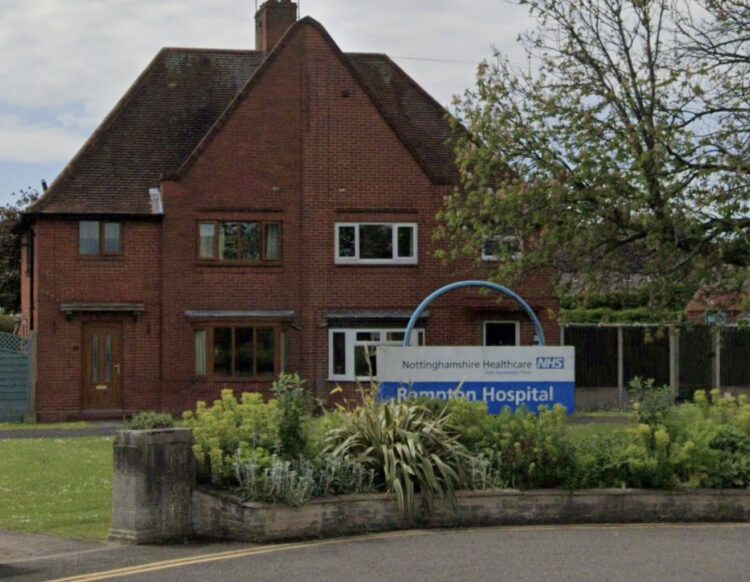By Charlotte Webster-
A damning report released by the Care Quality Commission (CQC) has unveiled significant deficiencies in mental health care provision by the Nottinghamshire Healthcare NHS Foundation Trust.
The review, ordered following the conviction of Valdo Calocane, has highlighted alarming lapses in patient safety and access to appropriate care, placing both mental health patients and the public at risk.
The investigation, prompted by the tragic killings of Barnaby Webber, Grace O’Malley-Kumar, and Ian Coates in Nottingham in June 2023, scrutinized the operations of Nottinghamshire Healthcare NHS Foundation Trust, responsible for catering to some of the county’s most vulnerable individuals.
The report, made public on Tuesday (March 26), revealed systemic failures that compromised patient safety and well-being.
At the forefront of concerns is Rampton Hospital, a secure psychiatric facility managed by the trust. Despite efforts to improve conditions, the hospital was found to be falling short in critical areas.
It found issues pertaining to poor communication between staff and patients, inadequate prescribing of medicines, and suboptimal staffing levels remained unresolved.
It found that people struggled to access the care they needed when they needed it, putting them, and members of the public, at risk of harm.
Like many other mental health services across the country, mental health services at NHFT were in high demand, with long waiting lists for community mental health teams, difficulties in accessing crisis care and lack of access inpatient beds.
A lack of oversight for people on waiting lists and too many patients without a care coordinator was putting them, and the public, at risk of harm.
The quality of care and treatment across the trust varied and care provided did not always meet the needs of individuals. While most patients were treated with kindness, compassion and dignity, the quality of care planning was inconsistent and patients, their families and carers were not always involved.
The make-up and size of teams did not meet the needs of the local populations, and care and treatment was not always in line with the Mental Health Act 1983 and Health and Social Care Act 2008 (Regulated Activities) Regulations 2014, as well as current evidence-based good practice and standards.
The report recommended re-licensing Rampton Hospital for only 12 months, underscoring the urgent need for accelerated improvements.
Valdo Calocane’s case, characterized by severe mental health problems including paranoid schizophrenia, underscored the imperative for robust mental health services.
However, the review found that access to mental health care under NHS Nottinghamshire was marred by high demand, prolonged waiting lists, and inadequate crisis care.
Furthermore, staffing shortages and inconsistent risk assessments contributed to lapses in patient safety, with concerns raised regarding the potential for harm to patients and others while awaiting care.
Ifti Majid, Chief Executive of Nottinghamshire Healthcare, expressed regret over the lapses identified in the report, acknowledging the trust’s failure to meet the needs of patients and their families.
Despite ongoing efforts to rectify deficiencies, Majid conceded that improvements were not forthcoming swiftly enough.
In response to the review, the trust has initiated a comprehensive improvement plan, aiming to address the concerns raised by the CQC.
Additionally, the trust is receiving enhanced support through the national Recovery Support Programme, signifying a concerted effort to expedite improvements and ensure the delivery of high-quality care.
Health and Social Care Secretary Victoria, who ordered the rapid review, emphasized the imperative of providing answers to affected families and rectifying systemic flaws in mental health care provision.
The forthcoming third part of the review, focusing specifically on the care available to Valdo Calocane, underscores the gravity of the situation and the need for comprehensive reforms.
The establishment of an Improvement Oversight and Assurance Group signifies a collaborative approach to monitoring and supporting the trust’s improvement objectives.
Leaders had addressed many of the issues identified on our previous inspections and recognised ongoing concerns with the culture need to be scrutinised.
Over the last 3 years, NHFT had reviewed governance and capacity across the forensic care group and made changes to align the governance structures across the care group. Recruitment processes have been refined and the high secure weighting payment reintroduced for staff.
While there was a noticeable improvement with the culture at Rampton, we were concerned that small pockets of poor culture remain. The senior leadership team recognised that the culture in Rampton Hospital needs to be scrutinised, understood, and developed.




